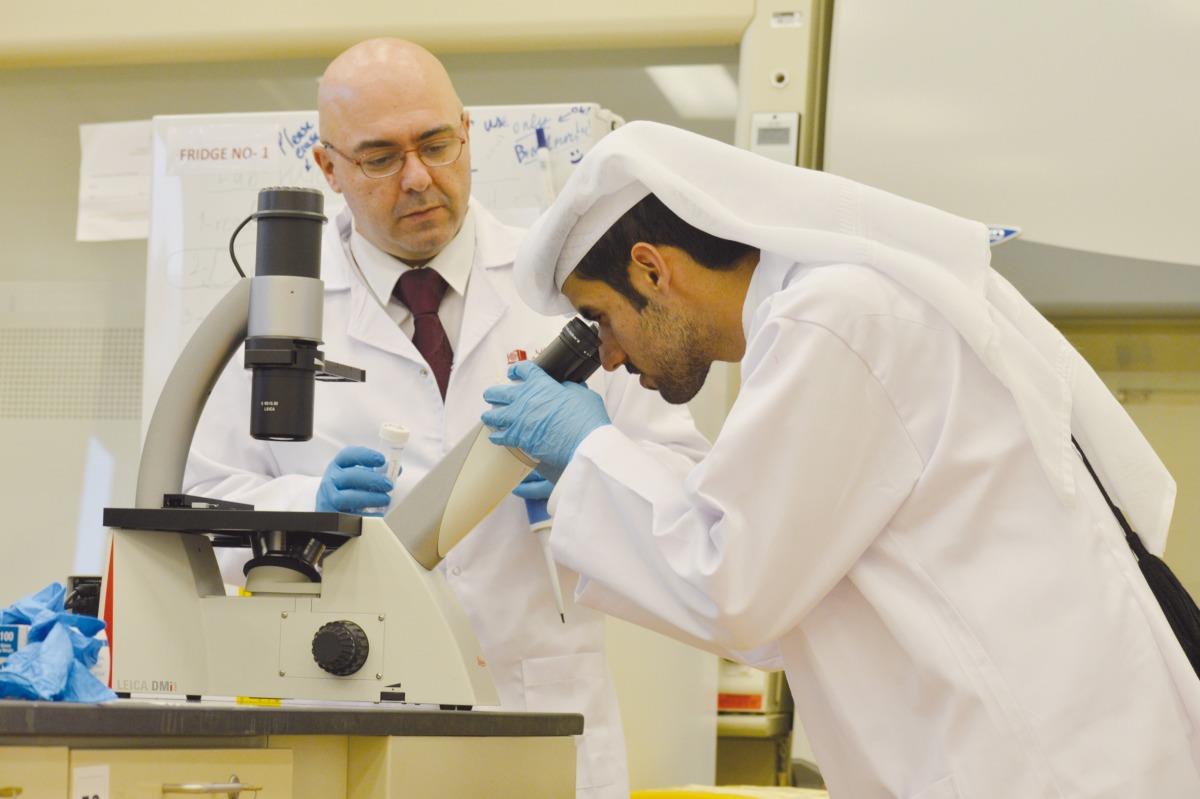
New Research Discovery Offers Hope For Treating Homocystinuria
Doha, Qatar: A recent research study conducted by members of Qatar University's (QU) Health Sector titled“Pathogenic Homocystinuria-Associated T236N Mutation Dramatically Alters the Biochemical Properties of Cystathionine Beta-Synthase Protein,” delineated the mechanism that a mutation in a gene encoding for an important protein can lead to homocystinuria, a rare inherited disorder.
This breakthrough discovery holds the potential to pave the way for more effective treatments for those affected by this condition.
In detail, this study revealed how an amino acid change (T236N) in an enzyme called cystathionine β-synthase (CBS) causes it to malfunction. CBS is an enzyme that helps break down homocysteine, a substance in the body. When CBS does not work properly due to a mutation, it causes a condition called homocystinuria. This genetic disorder leads to a harmful buildup of homocysteine, which can cause serious health problems like vision issues, blood clots, and bone deformities.
Right now, treatment options are limited for those affected. By understanding how the mutation affects CBS, researchers hope to develop treatments that restore its normal function, offering hope for better care to affected individuals around the world and especially to those in Qatar, where this condition is more common.
This research study was led by Dr. Michail Nomikos from QU's College of Medicine, Dr. Gheyath Nasrallah from the College of Health Sciences, and PhD graduate Dr. Duaa Al Sadeq. Together, this dedicated team combined their expertise in genetics, biochemistry and medical sciences to investigate the impact of the mutation on the CBS enzyme, advancing understanding of this disorder and its potential treatments.
Dr. Al Sadeq, who received the Best Dissertation Award in Medical Sciences for her outstanding work on this project, commented,“Our study sheds light on how a single genetic mutation can alter enzyme function in ways that contribute to serious health risks.” Dr. Nomikos added,“By understanding these molecular changes, we move closer to developing targeted treatments for homocystinuria, offering hope to individuals and families affected by this rare yet impactful disorder in Qatar and across the world.”

Legal Disclaimer:
MENAFN provides the
information “as is” without warranty of any kind. We do not accept
any responsibility or liability for the accuracy, content, images,
videos, licenses, completeness, legality, or reliability of the information
contained in this article. If you have any complaints or copyright
issues related to this article, kindly contact the provider above.























Comments
No comment